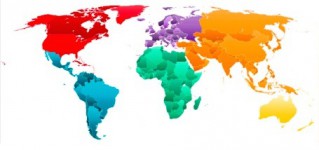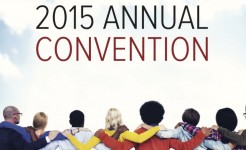Teaching Resources
The American Psychological Association’s Division 45, the Society for the Psychological Study of Culture, Ethnicity, and Race, is actively soliciting content and materials for its web page devoted to the teaching of the field; e.g., cross-cultural psychology, cultural psychology, ethnic minority psychology, multicultural psychology, etc.
The Teaching Resources section contains documents that pertain to any aspect of teaching the study of culture, ethnicity, and race. We want to catalog syllabi, activities, demonstrations, videos, PowerPoint presentations, and related resources to help instructors develop and improve course offerings. We encourage colleagues to also submit classroom activities, annotated bibliographies, film guides, lab manuals, advising aids, textbook compendiums, and other relevant instructional materials. All submissions will be been reviewed by volunteers serving on the Teaching Resources team.
The materials are targeted towards undergraduate and graduate courses in the field as well as integrating the field’s content into other psychology courses and programs.
Syllabi
Seminar in Cross-Cultural Psychology
Joseph E. Trimble, Ph.D.
Distinguished University Professor
Professor of Psychology
Western Washington University
Psychology 441, Spring Quarter, 2013

Cross-cultural psychology is the comparative study of cultural effects on human psychology. It examines psychological diversity and the links between cultural norms and behavior. It also examines the ways in which particular human activities are influenced by social and cultural forces. Furthermore, cross-cultural psychology primarily uses the comparative method to establish psychological concepts, principles, and hypotheses. The purpose of the seminar is to introduce the field of cross -cultural psychology and its contemporary applications. Through discussions and readings students can expect to develop a broader, global perception of contemporary psychology. Activities are intended to explain current psychological knowledge and its applications from a cross -cultural perspective. Additionally, the seminar will assist in developing a useful set of critical -thinking tools with which to analyze and evaluate psychology from various, ethnic, national, and religious groups.
Multicultural Psychology
Jeffery Scott Mio, Ph.D.
California State Polytechnic University, Pomona
Psychology 325, Winter Undergraduate

Topics covered in the class include culturally relevant styles of communication, values from different cultures, racial identity, power and privilege, and issues involving affirmative action. This course will help prepare students to grapple with issues of multiculturalism in the modern diverse society.
Social and Cultural Foundations in Counseling
Rebecca Toporek, Ph.D.
Department of Counseling
San Francisco State University
Counseling 833

This is a course designed to initiate students in engaging in a process of self-examination, knowledge expansion, and skill building with regard to multicultural counseling. This course uses an “inclusive” definition of multiculturalism reflecting multiple dimensions including age, race, ethnicity, gender, social class, religion, sexual orientation, ability/disability, and other dimensions of identity. Further, throughout the course, attention is given to the intersection of these various dimensions of identity as well as implications for counselors. Further, sociopolitical and contextual variables will be examined both for clients as well as the practice of counseling. The course content will address implications and roles for counselors conducting individual, group, organizational, and systemic interventions in a variety of settings (e.g., community, schools, higher education, etc.) including social justice advocacy and leadership. Issues related to school-age children, as well as young and older adults will be discussed.
Activities
Your Cultural Sketch: The ADDRESSING Framework
Pamela A. Hays, Ph.D.
Licensed Psychologist
Supervisor
Nakenu Family Center of the Kenaitze Tribe, Alaska

This Table and the following exercises are from: Hays, P.A. (2013). Connecting Across Cultures: The Helper’s Toolkit. Thousand Oaks, CA: SAGE, pp. 15-16. Original version published in Hays, P.A. (2008). Addressing cultural complexities in practice: Assessment, diagnosis, and therapy. Washington DC: APA.
Training Databases
APAGS CARED Multicultural Training Database
American Psychological Association of Graduate Students
APAGS, through its Committee for the Advancement of Racial and Ethnic Diversity, has created a multicultural training database to help psychology students develop competencies related to diversity and culture. These resources include a curated collection of links to syllabi, videos, experiential activities, mentorship opportunities and other diversity-related materials to enhance racial and ethnic diversity competencies and provide students with professional development support.
Convention Highlights
APA 2015
Race/Ethnic Relations and the Obama Presidency

As part of Dr. Stan Sue’s presidential initiative a symposium titled, Race/Ethnic Relations and the Obama Perspectives of Leaders in the Field was presented at the APA Convetion in Toronto. Materials for the symposium are available below.
Identifying and Developing More Culturally Sensitive and Diverse Leadership Styles
The impact of Obama’s presidency on race in America
The Case for a Color-Conscious Agenda
Impact on Identity for Racial/Ethnic Minorities
0 Comments